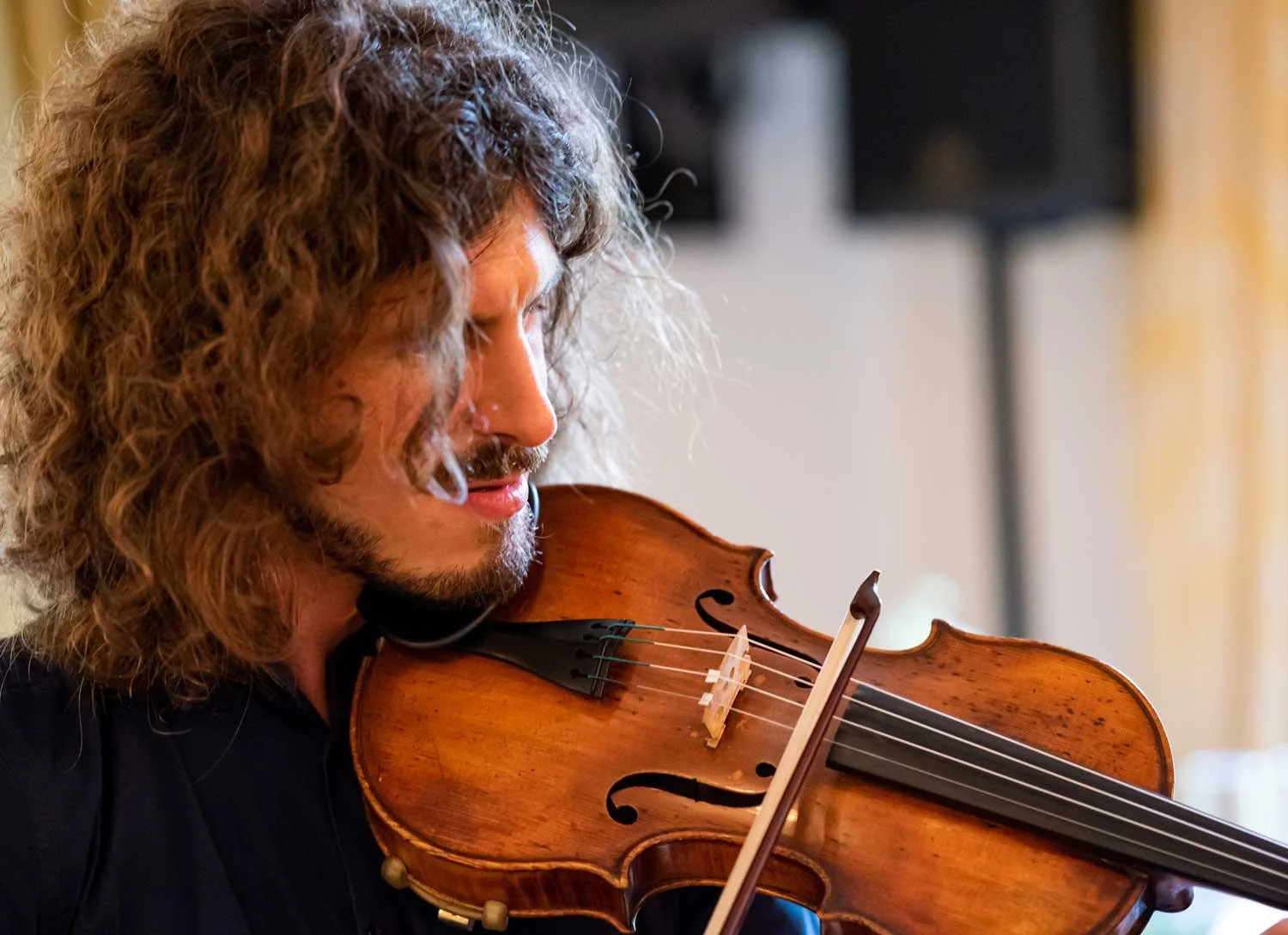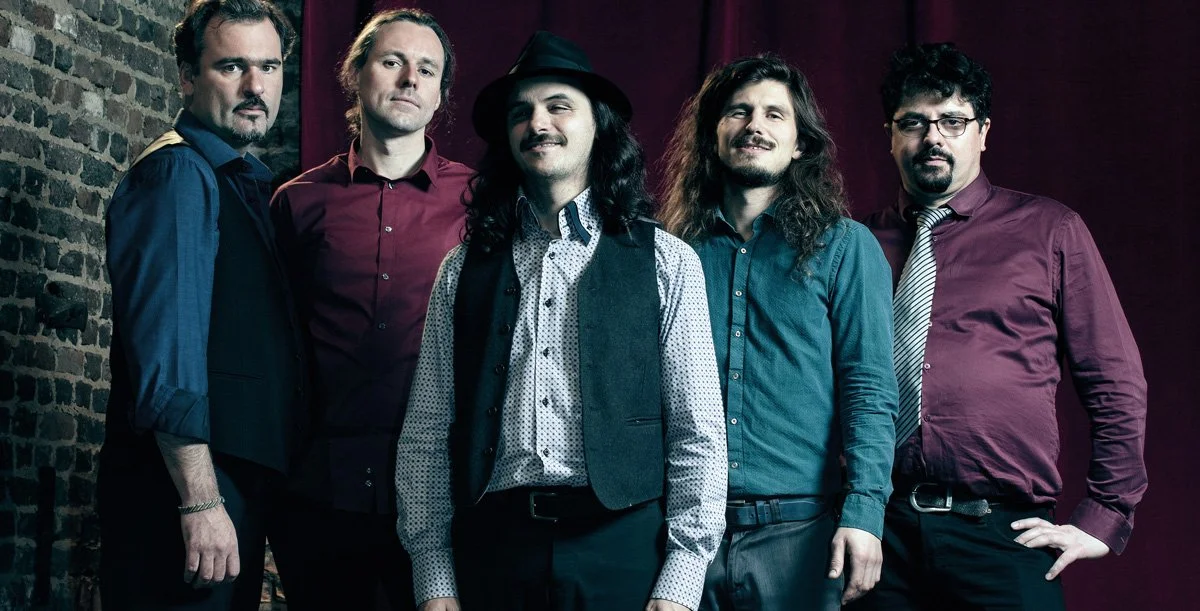
LES VIOLONS DE BRUXELLES
Les Violons de Bruxelles
An original take on the string orchestra. The traditional set-up of the legendary Hot Club de France Quintet, of violin, solo guitar, rhythm guitars & bass, turned on its head.
TCHA LIMBERGER – Violin
RENAUD CROLS – Violin
ALEXANDRE TRIPODI – Viola
RENAUD DARDENNE – Guitar
SAM GERSTMANS – Double Bass
almost impossibly breathtaking to bear witness perfection on such a scale - JAZZ DA GAMA (C)
•
Barcelone is likely to appeal to an audience beyond confirmed Djangologists - THE JAZZ RAG (UK)
•
music that comes from the people - BABELMED (FR)
•
reinventing manouche swing with a contemporary and timeless character - JAZZ HALO (B)
•
almost impossibly breathtaking to bear witness perfection on such a scale - JAZZ DA GAMA (C) • Barcelone is likely to appeal to an audience beyond confirmed Djangologists - THE JAZZ RAG (UK) • music that comes from the people - BABELMED (FR) • reinventing manouche swing with a contemporary and timeless character - JAZZ HALO (B) •
Periple en la Demeure 2022
Barcelone 2019
Les Violons de Bruxelles 2012
‘Tcharangito’
From the first album of Les Violons de Bruxelles - “Les Violons de Bruxelles “
MORE INFO
-
Les violons de Bruxelles have taken the legendary format of the Quintet of the Hot Club of France and turned it on its head; The double bass is still very much present, but the rest of the instrumentation is exactly the opposite: just one guitar and... three violins.
Both harmonically and rhythmically, the polyphonic composition of the group provides the improviser with a subtle but stimulating accompaniment, while the contrasting personalities of the three violinists give birth to a kaleidoscopic range of styles, moods, and shades of swing...A fresh and unique vision of the all-string swing orchestra!
-
TCHA LIMBERGER – Violin
RENAUD CROLS – Violin
ALEXANDRE TRIPODI – Viola
RENAUD DARDENNE – Guitar
SAM GERSTMANS – Double Bass -
Periple en la Demeure 2022 - Self released
Barcelone 2019 - Lejazzetal Records
Les Violons de Bruxelles 2012 - Home Records
-
They rightfully hold the patent for reinventing Gypsy swing with a contemporary and timeless character - JAZZ HALO (B)
An album that has won us over with its incredible good humor, and one you will be happy to share with your best friends! - BABELMED (FR)
almost impossibly breathtaking to bear witness perfection on such a scale - JAZZ DA GAMA (C)
Barcelone is likely to appeal to an audience beyond confirmed Djangologists - THE JAZZ RAG
The excursions into mellow Brazilian choro are a delight, and Limberger isn’t afraid to add unfussy vocals - THE TIMES (UK)
-
Top Ten Albums of 2019 - The Times







